Skyrocketing School Board Recalls Offer Window into Year of Bitter Education Politics
By Kevin Mahnken | November 1, 2021
On the night his constituents presented over 4,000 signatures to recall him from the Fargo school board, Seth Holden needed an escape.
The campaign had been gaining momentum all summer, with green-shirted activists circulating a petition at local concerts and farmer’s markets to remove four members, including Holden. Their complaints stretched back to 2020, when some parents pushed back against the board’s commitment to virtual instruction during the pandemic. Two days before the deadline, at a public meeting in late August, they announced they’d met the legal threshold to trigger a recall election.
Afterwards, feeling “a little disheartened,” Holden went in search of diversion. A contractor by trade, he found it in a late-night remodeling project.
“Sometimes painting is very therapeutic, so I went to work after the meeting and just painted all night,” he recalled. “I grabbed a pan and a roller and a couple of beers, turned my tunes on, and went to town.”
Holden was still a newcomer to public service, winning election just after the first COVID wave largely passed over North Dakota. When he’d voted to change the name of the local Woodrow Wilson High School last December over the 27th president’s racist misdeeds, he expected it would be “the peak of the political nature” of the job. Now, scarcely more than a year into his term, he considered the possibility that it might end much sooner than anyone had thought.
“Never in a million years did I imagine it would happen,” he said.
Holden isn’t the only one taken by surprise this year. According to the nonpartisan political site Ballotpedia, 2021 has so far seen 84 recall efforts targeting over 200 school board members. Those numbers are triple and quadruple, respectively, the average rates measured over the last 15 years, with attempts launched in large and nationally prominent districts like San Francisco and Loudoun County, Virginia.

Compared with better-known recalls, such as the unsuccessful attempt to unseat California Gov. Gavin Newsom, efforts directed at education officials have mostly stayed under-the-radar. The recall process is also a limited mechanism for political change due to its unwieldy nature: Unhappy constituents usually have to collect a large number of signatures; have those signatures be independently verified; and, if they manage those steps, prevail once an election is held. As a consequence, only one board member in the country has been successfully recalled from office this year.
But the increased willingness to trigger an unorthodox and rarely used process is a reflection of the unprecedented scrutiny directed at school boards this year, and parents’ outrage over COVID mitigation measures and the teaching of controversial subjects — a far cry from the miniature tempests that usually draw parents to board meetings — demonstrate how the themes of national politics have trickled down even to the local level.
Joshua Spivak, a researcher at New York’s Wagner College whose work focuses on recalls, said that the “explosion” in attempts this year are the direct result of COVID-19. While state and municipal politicians of different types have faced public opposition to their pandemic response, the fundamental and long-lasting disruption to K-12 schools has made board members a particular target.
“The school board is maybe the most obvious candidate for a recall in this situation because their impact is very clear: The schools are shut down, or there are masking requirements, so the [effect] is right there,” he said. “And there are parents who are ready to be organized in a very real way.”
A 74 analysis of Ballotpedia’s recall data shows that over half of the would-be recalls are related to either the pace at which districts returned to hosting in-person classes or boards’ willingness to mandate mask-wearing in schools. A smaller percentage spring from allegations that districts are teaching “critical race theory.” The rest pertain to an array of local concerns ranging from financial mismanagement to board members’ trouble with the law.
Caught in the middle are the everyday people sitting on boards, who largely serve in a part-time capacity while juggling other personal and professional commitments. Tom Gentzel, an education consultant who served as the CEO of the National School Boards Association until 2020, said that the tough decisions typically facing board members might center on merging elementary schools or firing a football coach — not national debates about public health or civil rights.
“They’re not part of some larger agenda at work, and they’re not politicians. I’ve often teased school board members that if they’re planning a political career, school board is probably not a great place to start.”
Progressive outrage in San Francisco
San Francisco, where critics of the local school board recently succeeded in forcing a recall election to be held in February, is one of a few places in the country that contradicts Gentzel’s characterization. It’s also located in California, the perennial leader in recalls around the country because of its relatively permissive rules around the practice. Twenty-five recall attempts against school board members have been initiated in California this year. (Wisconsin took second place with 11 attempts so far, while Arizona has seen 10.)
Crucially, the city is home to a large district where K-12 politics can take center stage and education officials frequently climb the ladder to higher office. Two former commissioners of the San Francisco Board of Education now sit on the city’s Board of Supervisors, itself a springboard into state and national politics whose alumni include longtime Sen. Dianne Feinstein and Gov. Newsom.
Politics in San Francisco, a national byword for left-wing organizing, are also substantially influenced by national conversations within the progressive movement. In February, the board voted to scrap competitive admissions criteria at the prestigious Lowell High School, arguing that its entrance exam unfairly advantaged white and Asian-American students at the expense of their Hispanic and African American peers. For over two years, a majority of commissioners have also waged a controversial fight to either destroy or cover a set of murals commemorating the life of George Washington in a high school named after the first president.
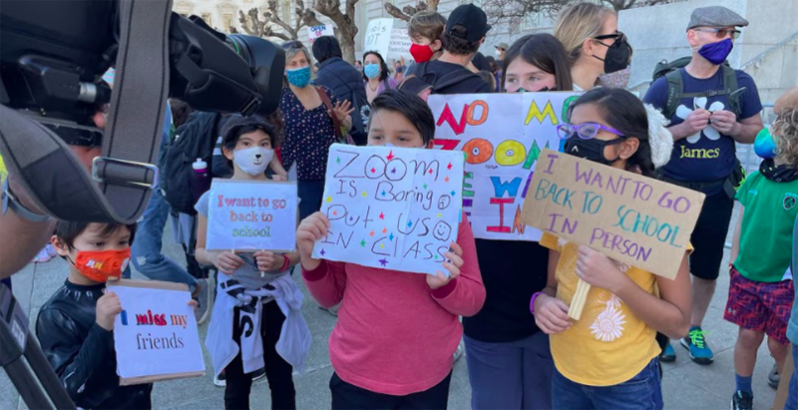
Rachel Norton, a three-term board member who declined to run for re-election in 2020, said that during the Trump presidency, “the national political climate really did spill into” local races to an extent that surprised her. Public anger directed at Washington dramatically increased election turnout, culminating in a further leftward swing in a city where Democrats already dominated the political scene.
“Voters in San Francisco wanted to send a message, and in a place where your politics are basically ‘blue versus bluer,’ it’s hard to send a message by punishing the red team,” Norton said. “So I think we ended up with an electorate that was willing to vote much further left, and much less moderate — by San Francisco standards — than we’d seen in the past.”
The increasingly activist bent of the new board became apparent in due course. Gabriela Lopez and Alison Collins, two members elected in the “blue wave” year of 2018, were chosen as the board’s president and vice president at the beginning of this year. A few weeks later, as the culmination of a process begun in 2018, the group voted to rename 44 schools throughout the district, including buildings named after Paul Revere and Abraham Lincoln.
The announcement generated local and national uproar, particularly after it was revealed that the panel charged with leading the renaming process had committed historical errors after using Wikipedia to research school namesakes. Even Mayor London Breed excoriated the board for prioritizing the renaming process over developing a plan to reopen schools during the 2020-21 school year. By April, a vote was held to rescind the decision.
But the reversal came too late to stop an attempt led by parents to initiate a recall election against three commissioners, including Lopez and Collins. Over six months into the campaign, the causes cited by its organizers extend past the renaming decisions. In March, Collins was discovered to have previously tweeted derogatory claims about Asian Americans, and after being stripped of her vice-presidency by the rest of the board, she opted to file an $87 million lawsuit even as a towering deficit threatens to force the school district into state receivership.
The medley of distractions represented “a testament to [the board’s] failure to prioritize and center students in their governance,” said Cyn Wang, a board member of the San Francisco Parents Coalition. Formed last year to advocate for safe reopening of city schools, the group has not been involved in organizing for the recall, but recently blasted the board for causing “harm to our students and public schools.”
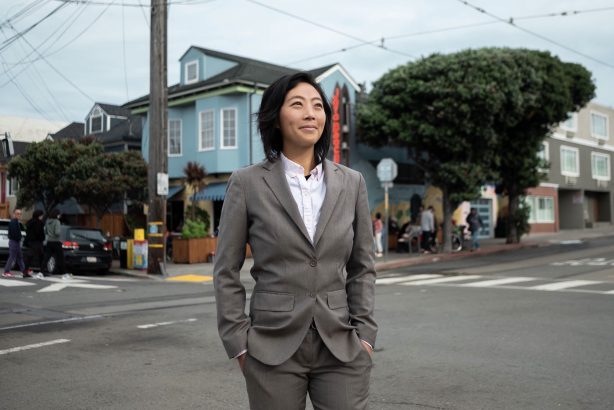
Wang said the coalition was composed of “San Francisco families with San Francisco values,” and that they believed in masking and following the recommendations of public health experts. But she added that the commissioners’ lengthy delays in allowing children to return to in-person classes — including forbidding Superintendent Vince Matthews from hiring a reopening consultant last spring — had taken an academic and emotional toll on her daughter, who spent half of kindergarten and all of her first-grade year learning from home.
“I saw her plummet into depression,” Wang said. “I saw her staying in her room for long periods of time. I saw the impact personally, and we’re very lucky compared with some other families. That really propelled me to get involved in this issue, and it woke me up to the general dereliction of duty of this board.”
Earlier this month, city election officials confirmed that the petitioners had cleared a huge hurdle by submitting over 50,000 verified signatures of city residents in favor of holding a recall election; that automatically triggered a vote that will be held on February 15. Spivak said that the procedural challenges surmounted by the board’s detractors, along with the national political relevance of the campaign, made San Francisco perhaps “the most notable” school board recall in over 60 years.
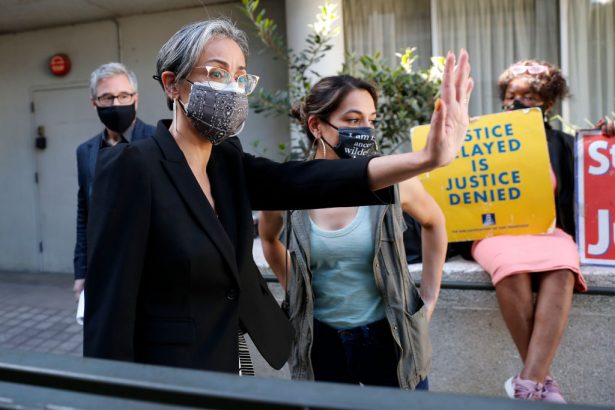
The next test will be whether voters will actually cast enough ballots to remove board members elected just three years ago. The same three members facing the recall are scheduled for regular re-election bids next November, and Norton said the February vote will change education politics in the city no matter its outcome.
“I do think there’s a scenario that, even if all three of them or some number of them survive, there will be a big conversation in the city about who should be on the school board,” she argued. “Candidates that otherwise would have had trouble breaking through might get more attention because of the recall.”
‘Critical race theory’ erupts in VA
In Loudoun County, Virginia, the nationally publicized quest to remove five members of the local school board will not hinge on how the voters respond; state law holds that such fights are adjudicated by a circuit court once sufficient signatures have been submitted. But that quirk has done nothing to calm the local political waters.
One of the members in question, Beth Barts, already resigned her seat earlier this month after a judge ruled that her proposed removal could move to a full trial. Fight for Schools, the political action committee spearheading the attempt, has said it has gathered enough signatures to file removal petitions against two other members.
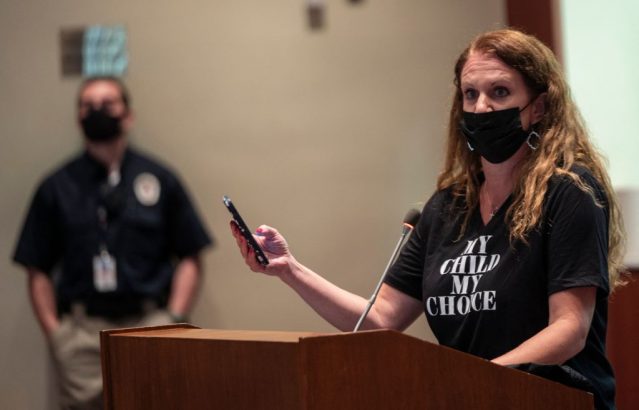
The stated reason for the campaign is that the members in question participated in a private Facebook group of “anti-racist parents” that strategized about how to combat racial inequity in Loundoun County Public Schools, the third-largest district in the state and one of the wealthiest in the country. The board’s detractors argue that without an announcement and the chance for public comment, that action violates the state’s open meetings laws and is grounds for removal. But the substance of their complaint reaches back to last summer, when many parents began to agitate for the 2020-21 school year to begin with a return to full-time, in-person learning.
Ian Serotkin, who is among the members targeted for removal, said that the public’s frustrations began to “bubble over” in late 2020. In a normal board meeting, he said, the public comment portion would attract 10-20 speakers. As the reopening debate wore on, that number swelled to the hundreds, with meetings stretching late into the night. Soon, viral videos began to circulate depicting enraged community members pleading with the board to bring kids back to school; raucous scenes from the proceedings became a reference point in media coverage of the anger and occasional intimidation being directed against school officials throughout the country.
Observers also noticed the volume of emails and speeches devoted to the controversy around how schools in Loudoun County addressed controversial subjects like race, gender, and sexuality. A dawning fixation on “critical race theory,” amplified by President Trump during last fall’s presidential race and repeated in conservative media, began to take over the conversation.
Serotkin said that critical race theory is not taught in Loudoun County, and the district’s recent initiatives to address racial disparities in discipline and academic achievement — including paying a six-figure sum to the California-based consultancy Equity Collaborative to help guide its efforts — were being “intentionally conflated” with indoctrination in the classroom. Nevertheless, he said, critics had succeeded in harnessing the community’s existing anger.
“The conversation took a turn away from just being about COVID, and the organizers of these political efforts started capitalizing on that with a captive group of parents who were very engaged in school issues about COVID,” Serotkin said.
Whether or not the analytical discipline of critical race theory is literally being taught in the classroom, some members of the community have raised concerns about the district’s actions over the last few years. After the board voted last August to change the admissions process of the district’s esteemed STEM magnet programs with the intent of accepting more Hispanic and African American students, parents sued, claiming that the revision discriminated against Asian students. This April, a county teacher posted an essay in the conservative Federalist website calling the district’s equity trainings “leftist institutional racism.”
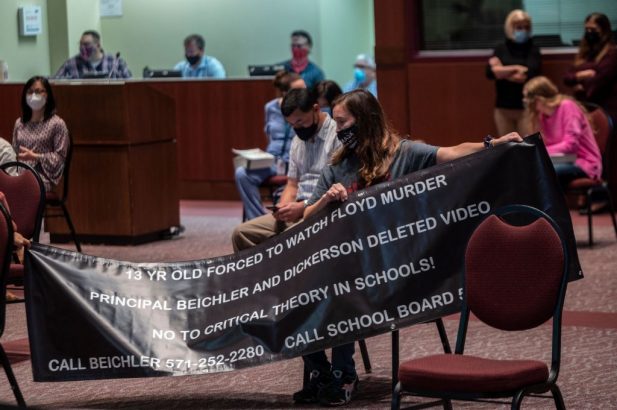
The effort to remove the board members began in March, after the existence of the private Facebook group became public. In a short-lived project that drew widespread condemnation and later spawned a four-month investigation from the county sheriff’s office, a few members of the group began to assemble a list of local parents who were part of an “anti-CRT movement”; one person recommended that steps be taken to hack or otherwise infiltrate those parents’ websites.
Ian Prior, a former Trump administration official and Fight for Schools’ executive director, said that he objected to some aspects of the district’s focus on social justice, but that his group’s real grievance was against what he described as bungled and biased leadership from the board. The prolonged closure of schools due to the pandemic, along with the close-up view that parents received once learning went online, had engaged many parents in local politics for the first time.
“The big picture, as I see it, is that this pandemic served to awaken parents to the need to be more engaged at the local level — certainly in elections but also in making sure their voices are heard and their elected officials are held accountable. For too long, we’ve seen people focus at the national level, on these big issues being debated on the national stage, and neglecting local issues.”
But what started as a clash among parents at the county level is now playing an outsized role in state politics. Virginia will elect its next governor tomorrow, and while Democratic former Gov. Terry McAuliffe has been considered the front-runner for much of the race, polls have tightened over the last month as his Republican rival Glenn Youngkin has focused more closely on K-12 issues. A successful businessman and first-time candidate, Younkin pledged months ago to ban the teaching of critical race theory in Virginia classrooms on his first day in office. More recently, he called for the resignation of both the Loudoun board and interim Superintendent Scott Ziegler over their handling of an alleged rape of a girl in a high school bathroom.
On Thursday, a Fox News survey gave Youngkin an eight-point lead among likely voters. Among respondents who identified as parents, the Republican enjoyed a 14-point advantage. Another, released on Friday by the Washington Post, found McAuliffe one point ahead. Twenty-four percent of respondents said that education was the most important issue in the race — the largest share of any single issue, and a nine-point jump since September. The state of the high-profile contest, one of just two major statewide elections being held this fall, has even led President Biden to campaign for McAuliffe personally. Another national figure, former Trump administration advisor Steve Bannon, is reportedly focusing on school board races as the opening skirmish in next year’s midterm fight for control of Congress.
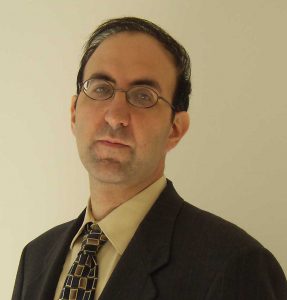
Barts, whose resignation was welcomed by Prior, did not respond to a request for comment. In resigning, she joined a handful of other board members around the country who chose to quit in the face of possible removal. Their departure suggests that recall attempts, whether or not they succeed in their aims, can alter the focus of school boards and serve as a warning even to members who aren’t themselves targeted.
“I think that is absolutely something that happens: They might think, ‘Okay, I don’t want this to happen to me,’” Spivak said. “It could inhibit behavior.”
A return to normalcy in Fargo?
Both the San Francisco and Loudoun County recall efforts remain ongoing after months of work and thousands of signatures collected, which is somewhat remarkable in itself: Even in a normal year, the majority of recalls fall short of the ballot due to the considerable organizing demands of recruiting volunteers and activating ordinary citizens who often pay little attention to local politics.
Despite the “enormous amount” of attempts this year, Spivak noted that just one board member has been ousted so far, in a small district in southwestern Colorado. The source of the public’s disapproval came not from the man’s position on mask mandates or critical race theory, but rather a series of intemperate Facebook posts.
Most would-be recalls instead follow the pattern that ultimately played out in Fargo. Less than a month after Seth Holden soothed his nerves with a night of home improvement, the district’s validation process found that there were not enough valid signatures to bring a question to the ballot. North Dakota law stipulates that Holden and his colleagues cannot be subject to another recall effort for the remainder of their terms.
Jim Johnson, another member targeted in the campaign, said he wasn’t particularly concerned about the recall campaign. A vice president of business development at a Minnesota-based insurance brokerage, he won his seat in 2000 and has prevailed in five successive reelection bids. The current debates over COVID mitigation and cultural politics are the most contentious he can remember during that time, burning even hotter than past disputes over Common Core or No Child Left Behind.
Still, he added, while the emotional tenor both inside and outside of board meetings has been heightened over the last year, it has been more in the spirit of “North Dakota Nice”; generally cordial, with a few exceptions.
“There were a couple of board members in particular that I think had some false accusations hurled at them on social media, which is unfortunate,” Johnson lamented. “I reached out to them and said, ‘This is the nature of politics, just let it roll off your back.’ But the vast majority of the people, even those involved in the recall effort, were being pretty civil the entire time. It was just a handful of people who let their emotions carry them away.”
Some degree of public concern has abated over the last month, with the recall scuttled and students having long since returned to classrooms. The North Dakota legislature passed a bill strictly limiting requirements around facial coverings — but since it only applies to state officials, it has not affected Fargo’s mask mandate, which the board recently voted to keep in place.
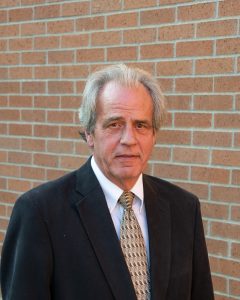
For the moment, Johnson looks forward to turning to more prosaic issues. Enrollment at Fargo Public Schools is up slightly this year, and the board needs to consider whether to build a new facility to house the former Woodrow Wilson High School. Other decisions, related to staff salaries and the supervision of recess periods, await as well.
“We’re a growing school district, and we’ve got to figure out where to buy land for future buildings, figure out where we’re going to hire our next set of teachers, make sure we have a teacher contract we can get ratified every two years,” Johnson said. “That’s really my game plan. Eleven thousand kids came to school today in Fargo, and they need to be educated.”
Lead Image: People protesting against critical race theory being taught in schools in Loudoun County, Virginia, on June 12. (Getty Images)
Get stories like these delivered straight to your inbox. Sign up for The 74 Newsletter

